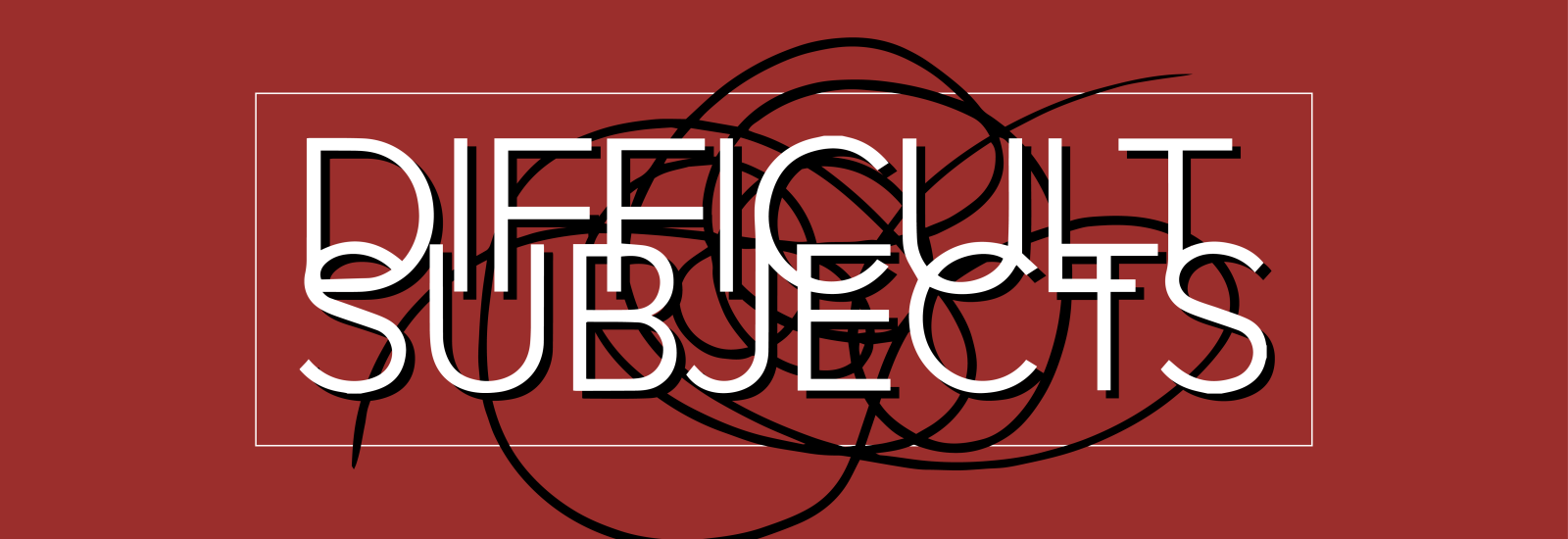Communities of Practice
About the institute
The Difficult Subjects: K-12 Interdisciplinary Teaching Institute — hosted by The Ohio State University’s Global Arts + Humanities — brings together elementary, middle and high school teachers from Central Ohio for an exploration of multidisciplinary approaches to understanding and teaching difficult subjects in America’s past and present.
Multidisciplinary institute design
Communities of Practice (CoP) workshops are the heart of the institute. These workshops are led by scholars from Ohio State’s College of Arts and Sciences who have expertise in history, literature, art, science, music and performance.
Rather than approach difficult subjects from the top down, the institute explores topics from the bottom-up and the inside-out. Grouping elementary to high school educators affirms that teaching difficult subjects effectively needs pedagogic scaffolding. Similarly, engaging teachers who specialize in a range of disciplines reflects the fact that difficult subjects are best learned across the curriculum, rather than in isolated subject areas.
Community of Practice workshops (spring 2026, 3 CEUs) feature semester-long content and pedagogy workshops on topics ranging from Equality, Freedom, Livability, and Movement. The institute also includes experiential-learning opportunities and culminates with an all-cohorts, on-campus capstone event.
- Orientation: January 17, 2026
- Monthly sessions: Saturdays from 9am to noon (virtual and/or in-person format) from February through June
- Stipend: $500 stipend paid directly to each participant
- Professional development: Program counts toward continuing education
Institute goals
- GOAL ONE Deepen K-12 teachers’ knowledge of the complexity and centrality of difficult subjects in the American experience.
- GOAL TWO Facilitate curriculum development for teaching difficult subjects in accordance with state standards.
- GOAL THREE Share best practices for teaching difficult subjects and develop new practices in collaboration with the teacher participants.
About the director

Hasan Kwame Jeffries is the director of the Difficult Subjects: K-12 Institute and an associate professor of African American history at The Ohio State University. He is the author of Bloody Lowndes: Civil Rights and Black Power in Alabama’s Black Belt. From 2010-2014, Jeffries served as the lead historian and scriptwriter for the $27 million renovation of the National Civil Rights Museum in Memphis, Tennessee. He has conducted teacher development workshops across the country and edited Understanding and Teaching the Civil Rights Movement. He has also worked with the Southern Poverty Law Center’s Teaching Tolerance division to produce a major national report entitled Teaching Hard History: American Slavery. Jeffries has made media appearances locally and nationally and served as a featured historian on the Emmy-nominated documentary, Black America Since MLK: And Still I Rise.
Additional information
District leadership may nominate educators by completing nomination/application webform. Individual educators may nominate themselves using the same webform; however, they must include a letter of recommendation or concurrence from their school principal.
The program offers each participating educator a modest stipend as well as textbooks and other resources. There is no cost for the teachers to participate. Stipends will be disbursed following the successful completion of the institute.
- Which educators would benefit from participating in the Difficult Subjects Institute?
Any K-12 educator would benefit from the program. Institute workshops are at the heart of the program curriculum and are led by scholars from The Ohio State University who have expertise in history, literature, art, music, science and performance.
- How does the district nominate an individual to participate?
District leadership may nominate educators by completing the nomination/application webform.
- Can individuals volunteer without the permission of their district leaders?
Yes, individual educators may nominate themselves by completing the nomination/application webform. However, they must include a letter of recommendation or concurrence from their school principal.
- How long and how often are the sessions in which our district’s educators may participate?
The program consists of 30 hours of professional development engagement and includes an orientation session (in January); three-hour Saturday seminars once a month (for five months) followed by an in-person experiential learning field trip and workshop (in June).
- Are there any costs associated with participating in the institute?
The program offers each participating educator a modest stipend as well as textbooks and other resources. There is no cost for the teachers to participate. Stipends will be disbursed following the successful completion of the institute.
- What is the specific process for participating educators from my district to earn credit for participation?
Upon successful completion of the whole program, educators will be awarded a certificate and verification of contact hours that may be submitted for CEU consideration to the relevant district committee.
Enrollment Process
- What is the process for enrolling in the institute?
District leadership may nominate educators by completing nomination/application webform. Individual educators may nominate themselves using the same webform; however, they must include a letter of recommendation or concurrence from their school principal.
- Can I enroll in two tracks simultaneously during the same year?
No. Each program track runs concurrently; therefore, participation is limited to one track per year.
- Can I enroll in another program track if I’ve participated in the past?
Yes, per the discretion of the director. Email Program Coordinator Siatta Dennis-Brown (dennis-brown.1@osu.edu).
- Can I participate if I am educational staff but not a teacher?
Those who are not direct educators may participate per the discretion of the director. Email Program Coordinator Siatta Dennis-Brown (dennis-brown.1@osu.edu).
Program Expectations
- Are there any costs associated with participating in the institute?
The program offers each participating educator a modest stipend as well as textbooks and other resources. There is no cost for the teachers to participate. Stipends will be disbursed following the successful completion of the Institute.
- What is the institute’s policy on attendance?
We understand that life happens, and conflicts may arise. Institute participants are expected to attend all of the sessions unless there are exigent circumstances. We encourage participants to consider applying for the following year if they are unable to fulfill this commitment. Please note that if participants are unable to attend the final field trip, the final stipend amount will be prorated down to $250.
- What is the format of the sessions?
Sessions may be virtual or hybrid depending on the format indicated by the instructor.
Program Resources
- When will I expect to receive books and materials?
Attending the program orientation is mandatory. Institute participants will receive their textbooks and other relevant resources at this event.
- What’s the vendor form? How and why should I complete it?
The Ohio State University requires all institute participants to complete and submit a vendor form in order to receive a payment from the university. This form establishes participants as vendors for this purpose.
- If I completed a vendor form in previous years, could I use the vendor information that I have on file?
The University has recently updated its Vendor Form protocols, and all Institute participants will need to submit new forms regardless of previous enrollment.
- How long will it take for me to receive my stipend at the completion of the program?
Electronic Direct Deposits may take up to 60 days. Regular checks may take up to 90 days.
Email Program Coordinator Siatta Dennis-Brown (dennis-brown.1@osu.edu).





